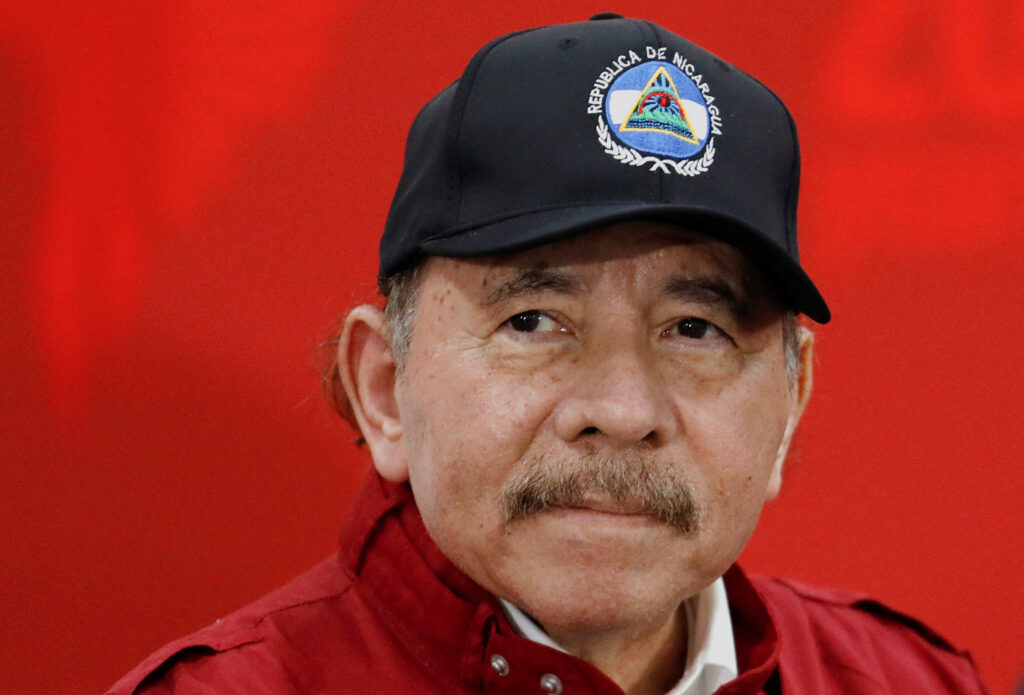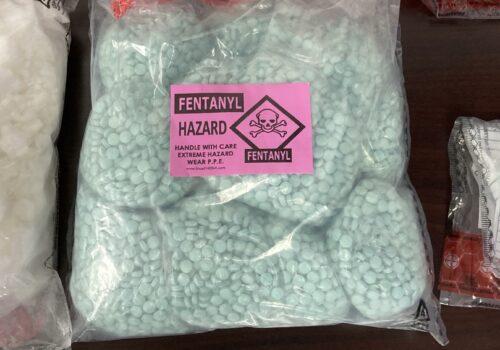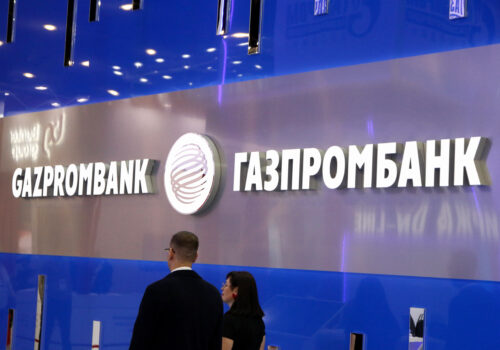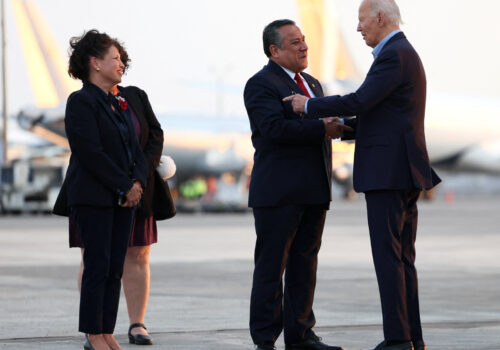On November 22, the Nicaraguan National Assembly all but solidified the country’s dynastic dictatorship, led by President Daniel Ortega and his wife, Rosario Murillo. The legislature approved a constitutional reform providing the regime power over all sectors of government, extending the presidential term from five to six years, and elevating Murillo from vice president to “co-president” alongside Ortega. The reform strengthens the Ortega-Murillo regime’s pressure campaign against civil society, the Catholic Church, and the media, all while it claims to protect the country from “foreign interests.” This constitutional reform has caused serious concerns among international watchdogs over a further escalation of human rights and civil liberties abuses.
All the while, the regime has grown economic and strategic ties with China and Russia as well as weaponizing vulnerable migrants against the United States. As Nicaragua’s top trading partner, the United States is well-positioned to leverage economic policy to push more against the country’s brand of dynastic authoritarianism. Applying stronger economic pressure would hold Nicaragua’s co-presidents accountable for their human rights violations, help promote democratic reform, and prevent further consolidation of the regime.
Nicaragua’s malign activity
The China-Latin America and the Caribbean Business Summit, held in Managua in November, marks the culmination of China and Nicaragua’s growing economic ties over the past year. With Nicaragua having joined the Chinese Belt and Road Initiative in January 2022, relations between the two countries have developed considerably. In January, China and Nicaragua signed a free trade agreement, which was followed by the inauguration of their first direct maritime trade route from Tianjin, China, to Corinto, Nicaragua, in August. Furthermore, the ship that inaugurated the trade route was carrying materials for the Chinese-sponsored construction of Punta Huete International Airport.
Even more recently, Nicaragua sent a delegation of thirty-one business leaders, led by Laureano Ortega Murillo, son of the two co-presidents, to the China International Import Expo. During the event, he stated, “Our government is fully open to Chinese investment. We are under the guidance of our president to facilitate everything we can do for Chinese businesses.” Chinese foreign investment oftentimes undermines US geopolitical interests, which has made curbing such investment a key foreign policy priority of the incoming Trump administration. For example, Nicaragua severed diplomatic ties with Taiwan right before joining the Belt and Road Initiative. China’s willingness to engage with authoritarian actors like Nicaragua greatly impacts US hemispheric goals for democracy.
On the national security front, military cooperation between Nicaragua and Russia has intensified. Over the past decade, nearly 3,500 Russian military personnel have entered the country, and Moscow has been providing the regime with military equipment and training since 2016. In March, the legislature, which is dominated by Ortega’s ruling party, permitted the construction of a police training center run by the Russian Interior Ministry. This deal builds upon previous espionage concerns associated with Mokorón Base, claimed as a hub for Russian espionage, and the Russian Global Navigation Satellite System. At the beginning of December, the Russian government approved a draft proposal establishing a joint military working group and extending military cooperation. In reference to Russia’s military presence, Laureano Ortega Murillo stated, “Nicaragua is Russia’s strategic ally in Central America. We position ourselves as its regional platform in all fields and we are committed to enhancing Moscow’s influence and action in the region.”
Furthermore, the Nicaraguan government traffics migrants to systematically increase migration pressure and fuel remittance payments, which comprise 30 percent of Nicaragua’s gross domestic product. In an effort to protest existing sanctions, the regime loosened visa restrictions for countries across the Caribbean, Asia, and Africa and sold ninety-six-hour visas to migrants looking to bypass the treacherous journey through the Darién Gap. The Nicaraguan government organizes charter flights for migrants through third-party airline companies while creating a million-dollar enterprise charging migrants predatory visa fees. Between May 2023 and May 2024, an estimated 200,000 migrants arrived in Augusto Sandino International Airport on “pseudo-commercial flights.” Approximately 10 percent of all migrants arriving at the United States’ southern border start the trek in Nicaragua.
Countering Chinese influence, curtailing immigration, and bolstering national security are issues that President-elect Donald Trump campaigned on. Since Nicaragua poses a threat to all three of these goals, the question becomes: What tools are at the disposal of the Trump administration?
Go for the gold
One option for the incoming administration is to enact wider sectoral sanctions, but there are pros and cons to this approach.
Following the 2018 antigovernment protests in Nicaragua, the first Trump administration issued Executive Order 13851 sanctioning key officials, including Ortega and Murillo. These individual sanctions did not have a significant impact on the regime. Therefore, the Trump administration should consider imposing wider sectoral sanctions on key economic sectors, such as gold and precious metals. The Biden administration slowly began to target the gold sector, designating multiple private companies and a government-run mining organization. All the while, the Biden administration still negotiated through diplomatic channels to release 135 political prisoners.
However, the sanctioned companies comprise only 1 percent of Nicaraguan mining concessions. Broader sectoral sanctioning on the gold industry would send a strong message by targeting one of the country’s top exports, serving as a bargaining chip to release remaining political prisoners and to promote democratic reform. Gold exports already outnumber Nicaraguan production rates, hinting at illegal gold mining and smuggling, which gold sector sanctions would likely exacerbate. As such, the administration must prepare a holistic framework to tackle illicit gold trade from artisanal and small-scale mining operations through commodities tracking, custody ledgers, or even chemical trace analysis measures. Lastly, the Trump administration should harmonize sanctions programs with allies such as the United Kingdom and the European Union to increase their efficacy. Considering that the United States imports the majority of Nicaraguan gold, targeting this sector would eliminate a large cash flow for the regime.
Push where the regime feels pressure: Trade
In recent years, some policymakers have proposed expelling Nicaragua from the Central America-Dominican Republic Free Trade Agreement (CAFTA-DR) to increase pressure on the Ortega government. For example, the first Trump administration considered it in 2019, seeing the agreement as providing an economic lifeline to an authoritarian regime. The Biden administration also considered expelling Nicaragua in 2022. But without an expulsion clause, there is no feasible avenue to expel Nicaragua without dismantling the entire agreement.
As Trump discusses the renegotiation of the US-Mexico-Canada Agreement (USMCA), sights could turn to CAFTA-DR. Any potential renegotiation of CAFTA-DR could include tougher restrictions on member countries’ interactions with Chinese investors while excluding Nicaragua from an updated CAFTA-DR to help prevent Chinese transshipment of goods into the United States. However, a review pathway for Nicaragua would need to be made available pending significant democratic reform.
Alternatively, the Trump administration could keep the CAFTA-DR in place while presenting the opportunity for accession of other qualifying members to the USMCA agreement. In this scenario, Nicaragua would not qualify, considering its rebuke of democratic principles, centralization of power, and strong ties to China. If Nicaragua’s neighbors choose to join the USMCA, Nicaragua would become susceptible to Trump’s proposed blanket tariffs, losing favored access to US markets. However, prior to the official disruption of CAFTA-DR, Trump should continue the US Trade Representative’s Section 301 investigation into Nicaragua’s adherence to labor rights, human rights, and the rule of law, which is a pathway to increased sanctions. The United States could also consider mobilizing the Department of Labor’s Bureau of International Labor Affairs in conjunction with the CAFTA-DR oversight commission to review labor and environmental requirement adherence.
Trade plays a significant role in Nicaragua’s economy, which makes these approaches a likely effective way to increase pressure on the government.
Keep the end in mind
Avenues exist to increase pressure on the Nicaraguan government, but it should be pressure with a point. Any new measures from Washington should be tied to specific calls for the regime to carry out democratic reforms, ensure human rights, and/or take steps to address security concerns emanating from its dealings with Russia and China.
In addition, the Trump administration should be aware that new punitive economic measures would likely result in an increase of Nicaraguan emigration. More than a fifth of Nicaragua’s population has already left the country and this will likely increase if the economic situation gets worse. To confront the regime’s exploitation of migrants, existing programs such as the Department of Homeland Security’s Operation Sentinel should be bolstered to investigate migrant trafficking operations and further explore their connections to the Ortega-Murillo regime.
Finally, the Trump administration will need to decide whether to continue the Biden administration’s policies toward Nicaragua, including the reallocated quota on imports of Nicaragua’s sugar, as well as existing export controls pursuant to the International Traffic in Arms Regulations and Export Administration Regulations.
The incoming Trump administration has consequential choices ahead of it, but the sooner it acts the better. The Nicaraguan regime’s increasing collaboration with China and Russia is providing the economic backing to crack down at home and make Nicaragua increasingly dangerous to the region. If Trump wants to meet his foreign policy campaign goals while reaffirming hemispheric human rights, Nicaragua is a good place to start.
Brennan Rhodes is a former young global professional with the Atlantic Council’s Adrienne Arsht Latin America Center.
Further reading
Thu, Dec 5, 2024
How Congress can thwart the flow of fentanyl using economic statecraft
New Atlanticist By David Mortlock
The United States should use sanctions to target entities involved in the fentanyl trade, and Congress can take action to make that approach more effective.
Thu, Nov 21, 2024
Five questions (and expert answers) about major new US sanctions on Russia’s Gazprombank
New Atlanticist By
To decipher these moves, we turned to some of our top sanctions experts to reveal what’s behind the decision and what to expect next.
Fri, Nov 15, 2024
Biden’s first presidential visit to South America comes too late and with China gaining momentum
New Atlanticist By Jason Marczak
To compete with Beijing in the Western Hemisphere, Washington should follow a four-part plan to prioritize, invest, message, and align.
Image: Nicaragua's President Daniel Ortega looks on as he attends a meeting of leaders of the member states of the Bolivarian Alliance for the Peoples of Our America and the Treaty of Commerce and Promotion (ALBA-TCP), in Caracas, Venezuela December 14, 2024. REUTERS/Leonardo Fernandez Viloria



